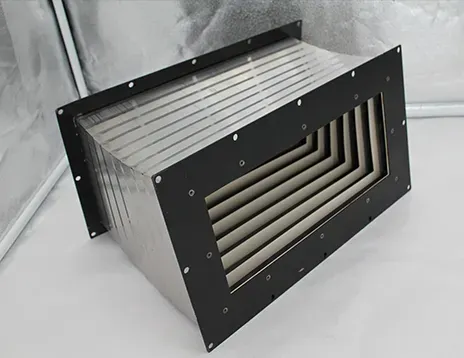Exploring the Benefits and Applications of Electrical Cable Chains in Modern Machinery and Equipment
Understanding Electrical Cable Chains Functionality and Application
Electrical cable chains, also known as energy chains or drag chains, play an essential role in modern automation, robotics, and machinery. These dynamic cable management systems are designed to protect and guide flexible electrical cables, hoses, and other components as they move with mechanical parts. This article explores the functionality, benefits, and applications of electrical cable chains, highlighting their significance in various industries.
What is an Electrical Cable Chain?
An electrical cable chain consists of a series of interconnected links that form a flexible track along which cables and hoses can be routed. These chains are engineered to withstand the rigors of continuous movement while providing protection against wear and tear. Unlike conventional cable management solutions, electrical cable chains are designed to accommodate motion, which makes them ideal for dynamic applications.
Functionality
The primary function of electrical cable chains is to manage the movement of electrical cables and hoses in machinery. In applications where machinery operates with repetitive or linear motion, such as CNC machines, robotic arms, and conveyor systems, the cables within a cable chain can flexibly move without becoming entangled or experiencing abrasion.
One of the key features of these chains is their ability to accommodate different cable types and sizes, including power cables, signal cables, and pneumatic hoses. The interior of the chain can be customized to fit the specific dimensions of the cables being used. This prevents damage and ensures optimal performance.
Additionally, cable chains are often designed for easy installation and maintenance. Most models include a simple opening mechanism that allows for quick access to cables for replacement or servicing without needing to disassemble entire systems.
Benefits of Using Electrical Cable Chains
1. Protection Electrical cable chains provide a protective housing for cables and hoses, shielding them from physical damage, dust, and contaminants that could lead to failure.
electrical cable chain

2. Durability Designed with materials such as high-strength plastics or metals, these chains can endure extreme conditions, reducing downtime and maintenance costs.
3. Flexibility The modular design allows for configurations to suit specific applications, facilitating customization that meets unique operational needs.
4. Efficiency Proper management of cables enhances overall system efficiency by reducing friction and wear, translating to lower energy consumption and longer lifespan for both cables and machinery.
5. Safety By securing cables and hoses in place, electrical cable chains minimize hazards related to loose or tangled cables, thereby promoting workplace safety.
Applications Across Industries
Electrical cable chains are utilized in numerous industries, showcasing their versatility. In the manufacturing sector, they are commonly found in automated assembly lines and robotics, providing effective cable management as machines perform intricate maneuvers. In the automotive industry, cable chains ensure the smooth operation of robotic welding arms and paint sprayers.
Furthermore, the entertainment industry employs electrical cable chains in theaters and concert venues to manage wiring for lighting, sound systems, and special effects. In construction, mobile cranes often use these chains to guide power and control cables, enhancing crane operation efficiency.
In the field of renewable energy, particularly in wind and solar farms, cable chains help manage the cables that connect various components, ensuring uninterrupted power generation and maintenance access.
Conclusion
In summary, electrical cable chains are indispensable components in modern machinery and automation. Their ability to protect, support, and manage flexible cables and hoses translates to increased efficiency, durability, and safety. As industries continue to evolve and seek innovative solutions for cable management, the importance of electrical cable chains will undoubtedly grow, solidifying their place as a cornerstone of contemporary engineering practices.








